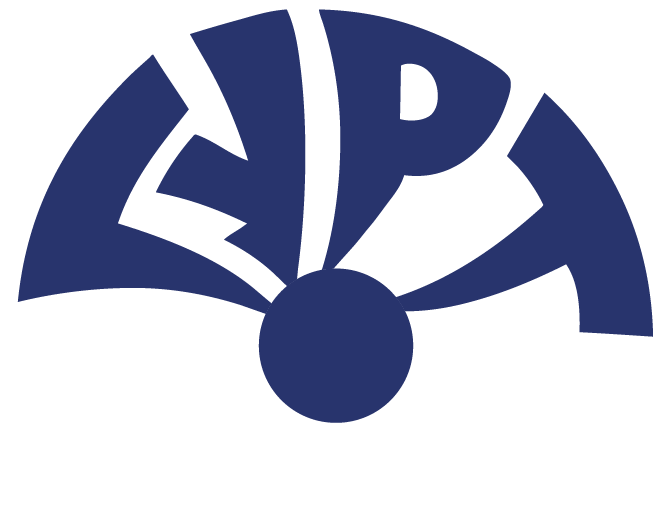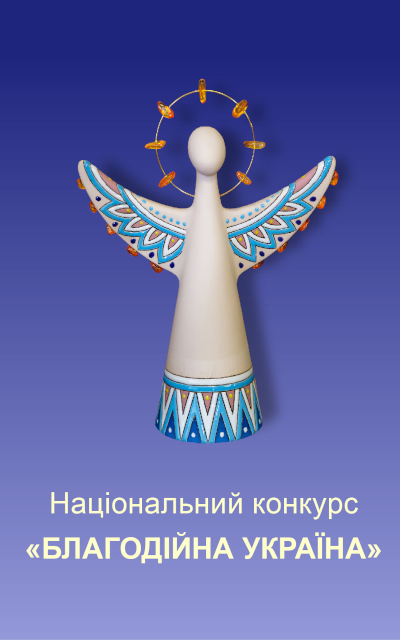


Надання послуг з оцінювання ефективності проекту
23.10.2019
«Польська Гуманітарна Акція» шукає консультанта для надання послуг з оцінювання ефективності проекту “Покращення доступу до якісної соціальної інфраструктури та послуг для населення, що постраждало від конфлікту у Донецькій області, Східна Україна.
1. Description of project activities to be evaluated
Polish Humanitarian Action (PAH) is an international non-governmental organization which since 1992 has been providing humanitarian and development help worldwide. So far, the interventions have been carried out in 46 different countries. By possessing long-standing expertise in the implementation of projects in Water, Sanitation and Hygiene, Food Security and Livelihoods, as well as Nutrition and Education, PAH concentrates its global activities on ensuring sustainable and stable development of regions suffering from the consequences of armed conflicts, natural disasters and other humanitarian crises.
PAH has been present in Ukraine since August 2014 delivering humanitarian aid to the most vulnerable of the conflict-affected population. PAH provides assistance to internally displaced people, elderly and single mothers, working in the sectors of food security, protection and livelihoods. PAH Ukraine is currently expanding programming from humanitarian to both early recovery and development-oriented interventions that provide sustainable livelihoods opportunities to the affected population.
For more information, please refer to www.pah.org.pl
The evaluation study is to be conducted for a development project aimed at enhancing accessibility to quality social infrastructure and services for conflict-affected populations in Donetska oblast’ through building capacity of employees of social services institutions, forming Community teams and capacitating them, running an advocacy campaign for better access to psychological services in project locations and mapping social services in project locations. The project is implemented by PAH IP “Child Smile”.
2. Background
The purpose of this Terms of Reference (TOR) is to call for competitive proposals for providing qualified expert evaluation assistance, namely, conducting summative evaluation of the project “Enhancing accessibility to quality social infrastructure and services for conflict-affected populations in Donetska oblast’, eastern Ukraine”, as according to the ToR. Evaluation study shall provide an independent and impartial assessment, complete with findings, conclusions and recommendations, of the idem project, based on the use of the best available, objective, reliable and valid data and by accurate quantitative and qualitative analysis of evidence.
To achieve the evaluation goals the data collection is scheduled at the end of the project, and will be combined with the endline data collection. Evaluation team will have access to all project data and monitoring reporting materials, including: project database, project proposal, logframe, periodic monitoring reports (mid-PDM/PIM), regular monitoring reports, feedback and complaints database, lessons learnt database, minutes from kick-off and project review meetings, as well as secondary data.
3. Purpose
The aim of this evaluation is to assess the relevance/appropriateness and effectiveness of the project. For the purpose of this study, relevance is concerned with assessing the extent to which the activities implemented by the project are suited to the priorities of the target group; appropriateness is the tailoring of program activities to the needs of recipients. The criteria of relevance and appropriateness are complementary, relevance refers to wider goals and priorities, and appropriateness refers to activities and inputs. Effectiveness is a measure of the extent to which an aid activity attains its objectives. In addition to the criteria of relevance and effectiveness the evaluation will include elements of meta-evaluation aimed at assessing the data collection methods and tools for measuring the project outcome indicators presented in the MEAL Framework for a project and developing new approaches towards measuring the outcomes of the Module 2 project (approaches may include but are not limited to such methods as outcome mapping, experimental design etc.)
The primary focuses of this evaluation is accountability to beneficiaries, and improving PAH’s program effectiveness during the Module 2 of the project (January, 01-December, 31, 2019). The results of the evaluation will be described and grouped into three main sections: findings, conclusions, and recommendations. The recommendations will be implemented into PAH’s future programming in Ukraine, PAH MEAL plan under this project, as well as shared with PAH HQ to be potentially incorporated into the programming of other PAH missions. The evaluation report will also be shared with Polish MoFA.
4. Evaluation Questions and Methodology
The evaluation team is expected to develop a specific and detailed evaluation plan with methods and data sources to be discussed and agreed on with PAH. The methodology should engage a mix of data collection and analysis methods. The methodology should be chosen with a clear intent to provide credible answers to the evaluation questions. The methodology should ensure that the information collected is valid, reliable and sufficient to meet the evaluation objectives and that the analysis is logically coherent and complete. The programme data collected should be verified through triangulation (use of multiple independent sources) wherever possible to ensure its objectivity.
The following methods of data collection, presented in the table below, are suggested (the evaluator may suggest own methods and tools as appropriate in full compliance with the requirements of these terms of reference). To assess relevance/appropriateness, effectiveness of the project activities, as well as assess the data validity, this evaluation will answer 5 evaluation questions, presented in the table below:
|
Focus |
Evaluation Questions |
Methods (Including but not limited to): |
Sources of information |
|
Relevance / Appropriateness |
1. Were the activities and outputs of the program consistent with the overall goal and the attainment of its objectives? |
Work with documents |
Project proposal, logframe, mid-PDM/PIM,and other monitoring reports, IP monthly narrative progress reports |
|
KIIs |
Project Coordinator (PAH and IP), project team members |
||
|
Survey |
Beneficiaries |
||
|
Effectiveness |
2. To what extent were the outcomes and objectives achieved / are likely to be achieved? |
Work with documents |
Project proposal, database, logframe, mid-PDM/PIM, and other monitoring reports. |
|
Surveys |
Beneficiaries |
||
|
KIIs/FGD/other relevant to the context methods |
Project Coordinator, IP Project Coordinator, project team members and other relevant sources of data as defined by evaluation team |
||
|
3. What were the major factors influencing the achievement or non-achievement of the objectives? |
KII |
Project Coordinator (PAH and IP), project team members |
|
|
|
|
||
|
Meta-evaluation (Data validity: face validity and measurement validity) |
4. Were the selected indicators and monitoring methods relevant for adequate measuring of the project outcomes (Module 1)?
|
Work with documents |
Project Proposal, MEAL plan, logframe, mid-PIM report |
|
FGD/KII/other relevant methods |
MEAL team, Project Coordinator (PAH and IP), Head of Programs |
||
|
5. What are the best methods for more reliable measuring of the expected outcomes of the Module 2 of the project? |
Work with documents |
Project proposal, logframe |
|
|
Literature and methodological recommendations review |
Resources (methodological recommendations, case studies etc.) related with outcome monitoring methods for development projects (outcome mapping etc.) |
||
|
Consultations/workshop with MEAL and Project teams |
|
||
|
Other relevant methods selected by the evaluation team |
|
5. Deliverables and Timeline
|
Expected deliverables: |
|
Timeline for finalizing deliverables: |
|
1) evaluation plan and design (including sample of survey respondents, schedule of FGDs and KIIs etc.); |
|
November 22th, 2019 |
|
2) data collection tools (survey questionnaire in the form of a text document and KoBo-form, FGD and KIIs guides); |
|
November 29th, 2019 |
|
3) draft evaluation report (which includes findings and conclusions sections, annexes with data collection tools); |
|
December 13th, 2019 |
|
4) final evaluation report (which includes findings, conclusions, and recommendation sections, annexes with data collection tools); |
|
December 27th, 2019 |
An external evaluator could be contracted either with individual consultancy contracts as physical persons or private entrepreneurs. An evaluator should meet following requirements:
- Academic background and/or work experience in monitoring and evaluation, preferably in the international humanitarian and development context
- Excellent knowledge of evaluation principles, norms, standards, methodologies, designs, ethics and practices
- Technical evaluation skills
- Proven experience of conducting programme or project evaluations, preferably in the international humanitarian and development context
- Excellent knowledge of Ukraine’s systems of social protection and social services
- Data management and analytical skills
- Communication and interpersonal skills
- Time management skills, ability to respect set deadlines
- Excellent writing skills
- Advanced knowledge of written and spoken English (C1-C2) and Ukrainian
In response to the PAH announcement, interested consultants should prepare and submit their applications in English, including the following inputs:
a) CV;
b) cover letter (cover letter should briefly describe applicant’s experience in conducting evaluation studies and proposed approach to evaluation methodology, data sources and data collection methods)
c) examples of previously conducted evaluation studies (links or soft copies);
d) commercial offer for proposed evaluation costs in Ukrainian Hryvnias, including all operational support costs, except for transportation in the project locations that is to be provided by PAH;
The deadline for submitting applications is October 28, 2019.7. Scheduling, Logistics, and Budget
The detailed schedule will be developed in the evaluation plan and will be in line with the timeline for finalizing deliverables presented in the p. 5 above. The preparation for the evaluation should start no later than 18th of November, 2019; the final report should be prepared no later than 27st December, 2019.
The schedule of field data collection (at least 5 days of field work) will be agreed with PAH Security Officer and local authorities will be informed in advance.
All costs of the evaluation will be covered by PAH through a contract for evaluation services. The evaluators are supposed to use their own equipment and tools for this assignment (computers, printers, cameras, voice recorders etc.) and make their own travel arrangements for travels (train tickets, accommodation etc.). At the same time, PAH will support the evaluator with the transportation in the field (to conduct FGDs and KIIs in all of the project locations, the services of drivers contracted by PAH will be used).
The contract amount will be paid in three instalments as follows:
20% upon approval of the evaluation plan, design and data collection tools
30% upon approval of the draft evaluation report
50% upon acceptance of the finalized evaluation report
Зацікавлених у співпраці просимо надсилати свої пропозиції на електронну адресу [email protected], зазначаючи “Консультант з оцінювання ефективності проекту” в тілі листа.



Коментарі